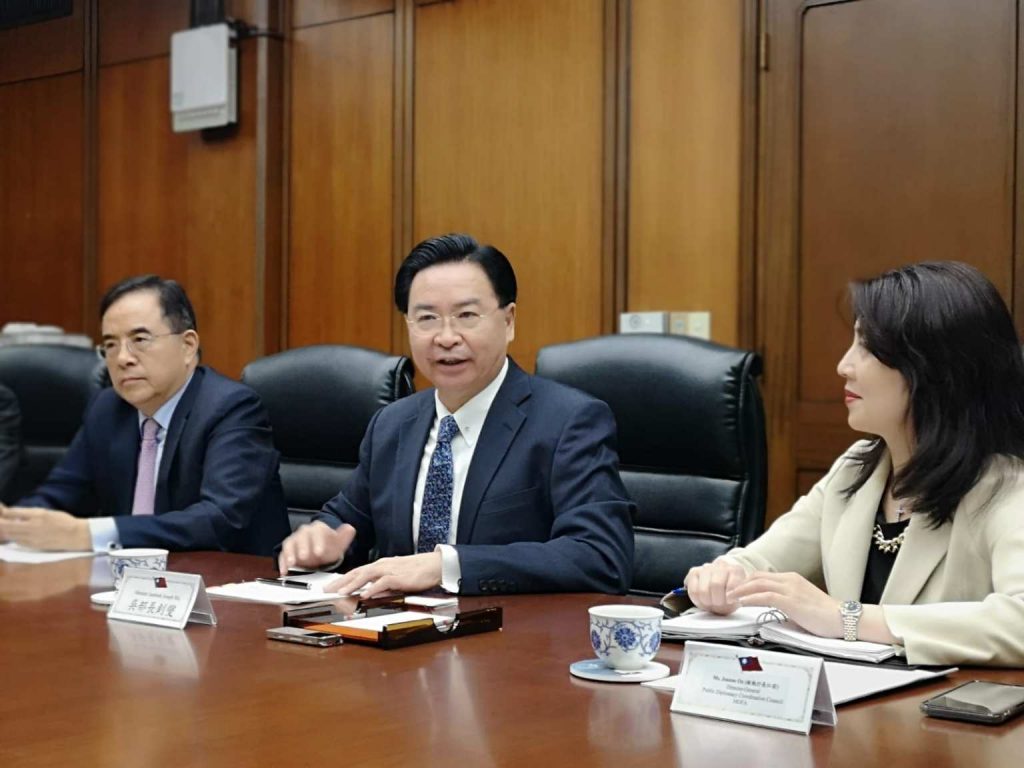ROME – Taiwan’s Ministry of Foreign Affairs has hit back against rumors in Italian media that China is pressuring Vatican officials to cut ties with the island territory in exchange for full diplomatic relations, insisting their relationship with the Holy See is strong and is not at risk.
In an Oct. 25 statement, the ministry stressed that it “has never specifically commented on the information disclosed by the Italian medium citing unnamed sources or conjectures.”
However, they insisted on “the strong ties between Taiwan and the Vatican and the openness of various channels of communication.”
The statement was made following an Oct. 25 report in Italian newspaper Corriere della Sera which quoted an unnamed and alleged top Vatican official as saying, “China would like us to break diplomatic relations with Taiwan, promising to inaugurate those with us in exchange.”
“But we have always replied that first Beijing must allow us to open an apostolic nunciature in the capital. Only then will we be able to review our relations with the Taipei government,” the official reportedly said, adding, “since that step has never been taken, things remain as they were, and we hope that the situation does not get worse.”
Tensions between China and Taiwan have increased in recent weeks.
Since the beginning of the month, China has sent nearly 150 planes into Taiwanese airspace, and in a Sat. Oct. 23 statement, Chinese President Xi Jinping said, “the complete reunification of our country must be and will be realized.”
The situation has also caused some tension between the United States and China, after U.S. President Joe Biden during a CNN town hall Thursday said the US would defend Taiwan if mainland China were to attack.
Asked if the U.S. was both willing and able to defend Taiwan in the event of an attack from China, Biden said, “yes and yes,” adding that, “China, Russia and the rest of the world knows we have the most powerful military in the history of the world.”
When the moderator followed up by asking if that meant the United States would defend Taiwan from a Chinese attack, Biden said, “Yes, we have a commitment to do that.”
A White House spokesman later clarified that there has been no change in U.S. policy toward Taiwan, and that defense cooperation with Taiwan continues as outlined in the Taiwan Relations Act enacted in Congress in 1979 after the United States established diplomatic ties with China.
Although the Taiwan Relations Act severed ties between the United States and Taiwan, the act also assured that the U.S. would continue to provide support, specifically pledging to “make available to Taiwan such defense articles and defense services in such quantity as may be necessary to enable Taiwan to maintain a sufficient self-defense capacity.”
According to the act, the U.S. would “maintain the capacity to resist any resort to force or other forms of coercion that would jeopardize the security, or social or economic system, of the people of Taiwan.”
This open-ended language has long been the basis of what observers have dubbed the United States’s “strategic ambiguity” when it comes to Taiwan, and Washington officials have largely refused to comment on whether the U.S. would in fact come to Taiwan’s defense if China attacks.
Though an attack on Taiwan from China does not appear to be imminent, Taiwanese officials have taken note of increased signs of aggression, including the increasing number of Chinese planes entering their airspace, and they have taken measures to build up their own defenses.
To this end, the United States last year provided Taiwan with some $5 billion worth of weapons.
Biden will be in Rome this week and will meet with Pope Francis at the Vatican, which is Taiwan’s only remaining western ally, ahead of a two-day G20 summit.
The Holy See is just one of 15 countries who have maintained diplomatic relations with Taiwan, however, it has long been the Holy See’s goal to establish formal ties with China.
Speculation that formal Vatican-China relations could be on the table has increased ever since the Holy See signed a temporary provisional agreement with China on the appointment of bishops in 2018. That deal, which lasted two years, was renewed for an additional two years last October, with many observers convinced that this is the first step in the Vatican’s pursuit of diplomatic ties with China.
In their statement, the Taiwanese Ministry of Foreign Affairs cited the consistent support Taiwan has provided to the Vatican and religious communities throughout the coronavirus pandemic.
They also noted that Taiwanese President Tsai Ing-wen was at the top of the list of people who Pope Francis thanked for sending him well-wishes after his colon surgery in July, and that the pope had also sent Taiwanese officials a message in honor of their National Day on Oct. 10.
“All of the above are examples of the strong friendship and healthy state of Taiwan-Vatican relations,” the statement said.
On the provisional agreement with China for the appointment of bishops, the ministry said it is “a pastoral deal and does not involve political affairs.”
“The Taiwan government hoped that the agreement and related actions could help improve religious freedom in China,” the ministry said. “However, following the agreement, China has tightened restrictions on religions causing the underground Church to suffer more severe coercion and suppression, as persecutions have been growing.”
The ministry said it is “closely watching” the status of religious freedom in China, and is hopeful that “faithful in China may truly enjoy the universal values of religious freedom and basic human rights protection.”
“MOFA will also continue to deepen exchanges with the Holy See and the Catholic Church based on their long-standing relations and shared values,” they said.

